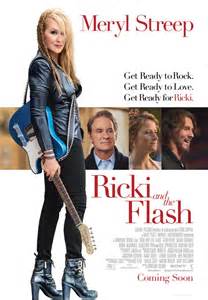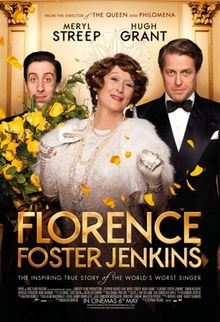
We’ve all heard his tall tales about the living dead in Beverly Hills. 1978. Narcissistic fading actress Madeline Ashton (Meryl Streep) performs in a Broadway musical. She invites long-time frenemy, mousy aspiring novelist Helen Sharp (Goldie Hawn), backstage along with Helen’s fiancé, famed plastic surgeon Ernest Menville (Bruce Willis). Infatuated with Madeline, Ernest breaks off his engagement with Helen to marry Madeline. Seven years later, a lonely, obese, depressed and destitute Helen is committed to a psychiatric hospital where she obsesses over taking revenge against Madeline. Another seven years later, Madeline and Ernest live an opulent life in Beverly Hills but they are miserable: Madeline is depressed about her age and withering beauty and Ernest, now an alcoholic, has been reduced to working as a reconstructive mortician. After receiving an invitation to a party celebrating Helen’s new book, Forever Young, Madeline rushes for spa beauty treatments. When she mentions she will pay any price, the spa owner gives her the business card of Lisle Von Rhuman (Isabella Rossellini) a mysterious, wealthy socialite who specialises in rejuvenation, which Madeline dismisses. Madeline and Ernest attend Helen’s party and discover that Helen is now slim, glamorous and youthful despite being 50. Jealous of Helen’s appearance, Madeline observes as Helen tells Ernest that she blames Madeline for his career decline. Madeline later visits her young lover but discovers he is with a woman of his own age. Despondent, Madeline drives to Lisle’s mansion. The youthful Lisle claims to be 71 and offers Madeline a potion that promises eternal life and youth. Madeline hesitates but then buys and drinks the potion which reverses her age, restoring her beauty before her eyes. Lisle warns Madeline that she must disappear from the public eye after ten years, to avoid suspicion of her immortality and to treat her body well. Meanwhile, Helen seduces Ernest and convinces him to kill Madeline. When Madeline returns home, she belittles Ernest who snaps and pushes her down the stairs, breaking her neck. Believing her to be dead, Ernest phones Helen for advice but drops the phone in shock when he sees Madeline approach him with her head twisted backward. Ernest takes Madeline to the hospital where the doctor’s (Sydney Pollack, uncredited) analysis shows she is clinically dead. Ernest finds Madeline in a body bag and considers her reanimation to be a miracle. He uses his skills to repair her body at home. Helen arrives and, after overhearing her and Ernest discussing their murder plot, Madeline shoots Helen with a shotgun. The blast leaves a large hole in Helen’s torso but she remains alive – she also has taken Lisle’s potion. Helen and Madeline fight before apologising and reconciling. Depressed at the situation, Ernest prepares to leave, but Helen and Madeline convince him to first repair their bodies. Realising they will need regular maintenance, they scheme to have Ernest drink the potion to ensure his permanent availability. The pair knock out Ernest and bring him to Lisle, who offers him the potion in exchange for his surgical skills … You are in violation of every natural law that I know. You’re sitting there, you’re talking to me – but you’re dead! Eternal youth, cosmetology, the living dead, remarriage screwball, Gothic horror and mad science combine fruitfully in this satirical black comedy that takes swipes at everything within range – Hollywood, vanity, fame, narcissism, beauty, immortality and of course actresses, which leads to an interesting casting conundrum with two of the town’s most amazing fortysomethings as the leads. Hawn is a gorgeous and gifted comedienne but here she is the designated ugly duckling who blooms into a fabulous romantic novelist. Streep had actually played just such a character in She-Devil and essayed her BFF Carrie Fisher’s avatar in Postcards From the Edge a role which supposedly made this frosty technical performer more loveable, as the critics of the era might have it. Here she goes full Joan Crawford in a movie which asks the audience to see her as a legendary screen beauty but her singularity mitigates this proposal somewhat. (Un)naturally there has to be a quote from Bride of Frankenstein and Hawn is gifted It’s alive! It is of course Rossellini who astonishes in her semi-nude presentation, a luscious cross between Cleopatra and Louise Brooks. Now she really has a body to die for. This fact alone crystallises the point of the movie – the business’ attitude to its female cohort. That she’s escorted by Fabio places this in its time but luckily both Elvis and James Dean turn up at one of her gatherings which lands the premise about stars living forever. It’s nice to see Ian Ogilvy at hand as the master of ceremonies. With a combination of CGI (including skin texture) produced by Industrial Light and Magic, animatronics and blue screen, this is a triumph of special effects if not entirely of story despite Martin Donovan & David Koepp having a hand in the screenplay. The characters simply aren’t developed adequately and they feel like the object of a long joke that pitches actresses against each other and then forces them to finish out their days with their worst enemy – each other. The often hysterical lively fun occasionally feels like it has a hole in the middle, like Helen. Directed by Robert Zemeckis. You gave other people your youth and wasted your own






















































































